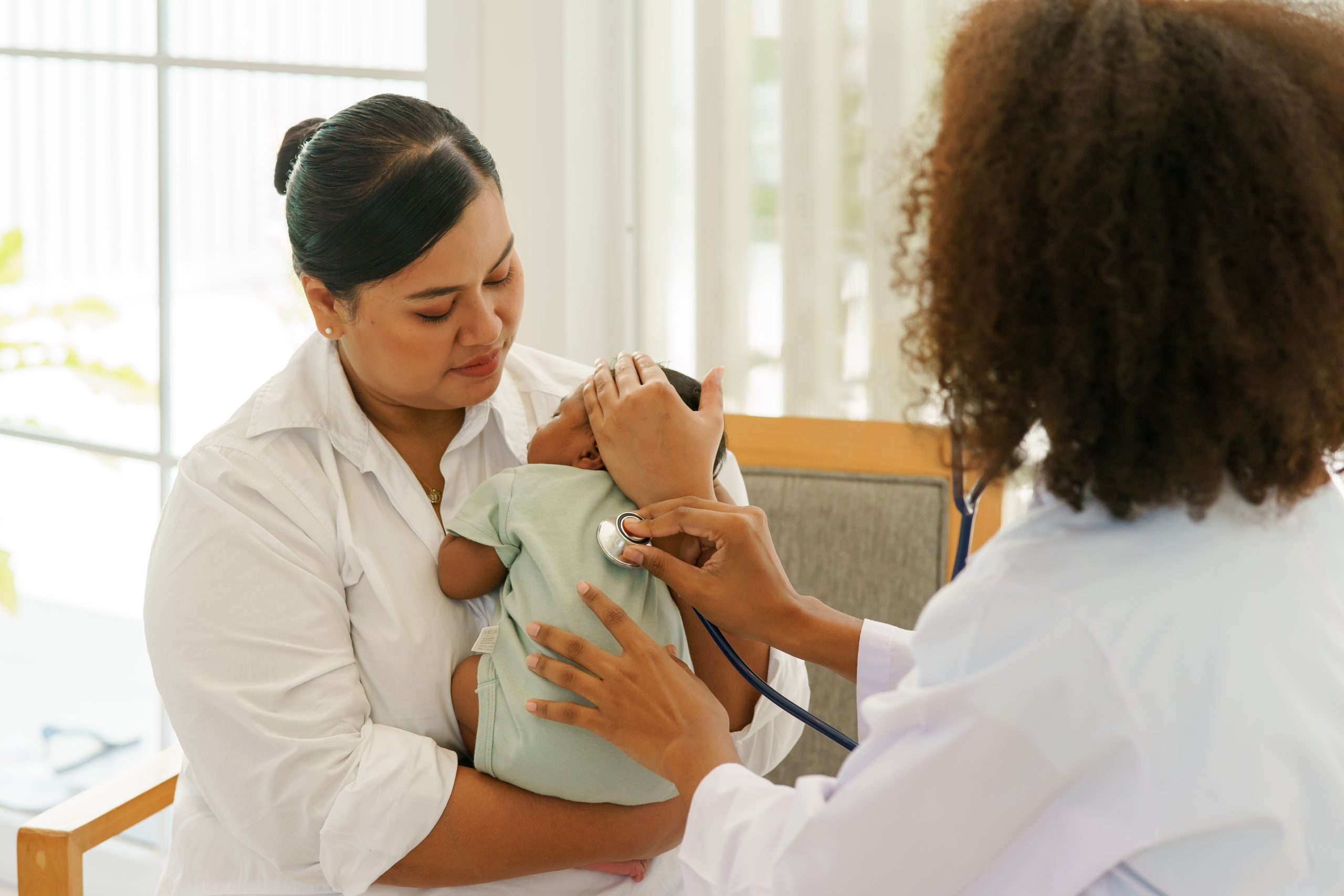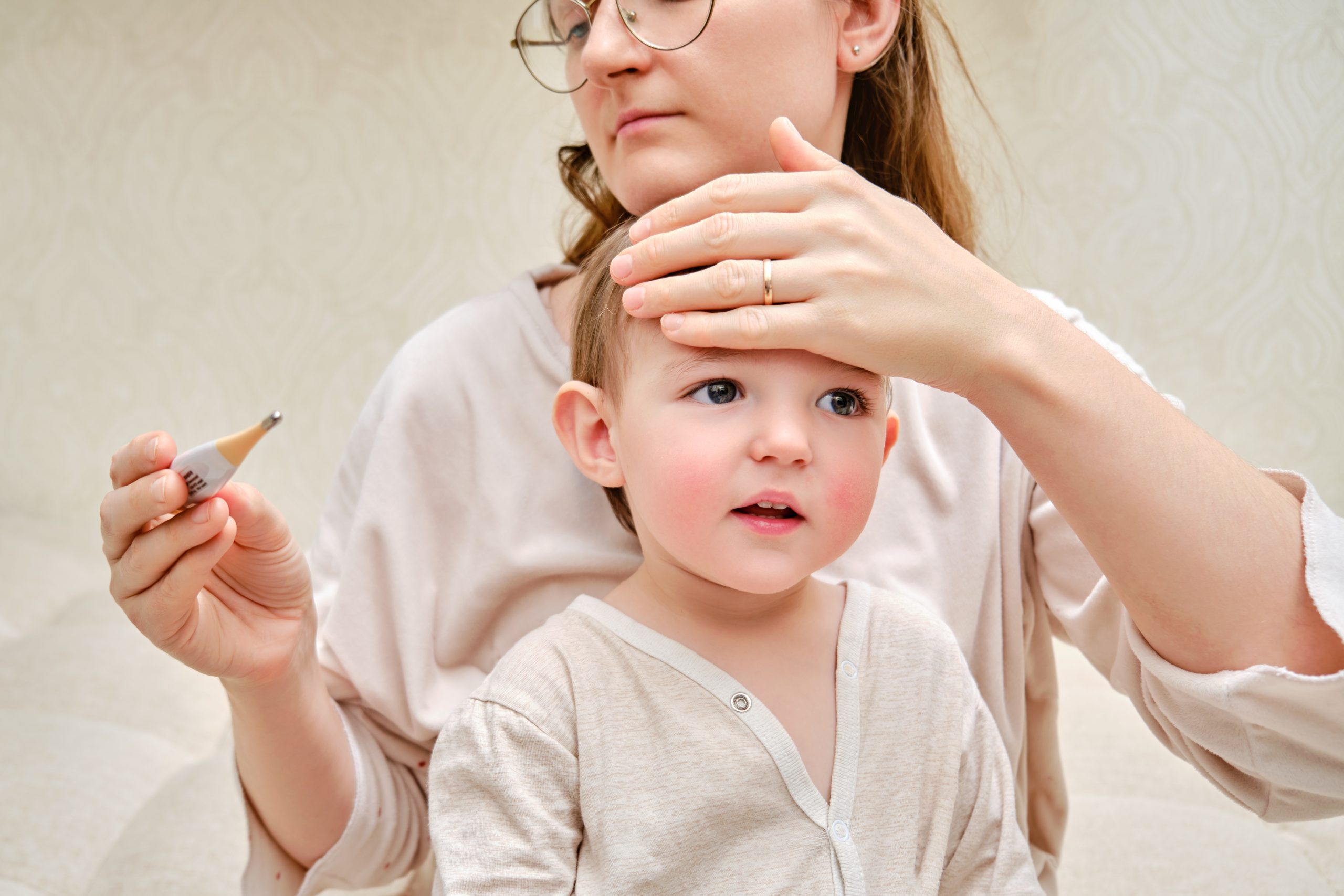What is Meningitis?
Meningitis is an infection of the meninges, which are membranes that cover the brain and spinal cord, and it can occur in both adults and children. Once infected, these membranes swell. Viruses are responsible for most cases of meningitis (referred to by doctors as ‘viral meningitis’), but bacteria can also cause meningitis, which, although rare, can develop into a life-threatening medical emergency. The commonest cause of bacterial meningitis is a bacteria called Streptococcus pneumoniae. This infection can have long-term consequences or even prove fatal and so prompt treatment is necessary to minimize the risk of adverse outcomes.
The incidence of severe pneumococcal infection, including meningitis, has decreased significantly since the introduction of the pneumococcal vaccine. Babies under 2 months of age are at greater risk of getting meningitis, according to the American Academy of Pediatrics (AAP). It’s not known for sure why some babies get meningitis and others don’t, but they believe it could be related to immature immune systems.
INFORMATION
Recognising Meningitis
The symptoms of meningitis in babies, initially, may not be that obvious or different from many other spells of illness. In some babies, the first signs and symptoms may appear nothing more than being irritable or tired. However, given that meningitis can become very serious very quickly, it is essential that parents are aware of its symptoms, so that they can seek medical care immediately if meningitis is at all suspected.
Emergency Contact
The video refers to getting emergency help. In Cayman, the emergency number is 911, not 999.
My Contact Details
My patients (or anyone who is worried about their baby) can call me directly on +1 (345) 326 7827 (it’s rare for me not to be available).
Video on Meningitis Symptoms
The following video is a really useful quick guide to symptoms, taking just under 2.5 minutes to watch.
More on Symptoms
There are many symptoms that can indicate meningitis in babies but the most common symptoms include:
- Bulging fontanel (the soft spot on top of the head). Caused by increased pressure or fluid in the brain
- Fever. A high temperature is always a red flag for infection, but some babies, especially those under 3 months of age, may not have a fever
- Cold hands and feet, especially with a warm body (torso)
- Chills, which may include shivering, with or without a fever
- Stiff neck. Babies sometimes hold their bodies in a stiff position and may also hold their head tilted back
- Irritability and crying, especially when picked up, often due to a sore or stiff neck, muscle and body aches
- Rapid breathing
- Persistent vomiting
- Refusing feeding
- Extreme sleepiness or floppiness. It can sometimes be difficult to wake your baby
- Red or dark rash or marks on the body
Glass Test
If your baby has a rash that doesn’t fade under a glass, it’s a sign of blood poisoning (septicaemia) caused by meningitis and you should get medical advice right away. The rash can be harder to see on dark skin. Check for spots on paler areas like the palms of the hands, soles of the feet, the tummy, inside the eyelids, and the roof of the mouth.

Treating Meningitis in Babies
Bacterial meningitis is treated with antibiotics. These are typically given intravenously in the hospital, requiring your child to be admitted to the paediatric ward at George Town Hospital (to which I and a number of other private paediatricians have admitting rights). You may have gone directly to George Town A&E, which I will sometimes advise directly. If you are registeted with me, I will be contacted to come and admit.
According to the American Academy of Pediatrics and studies, most babies who receive prompt antibiotic treatment recover completely. However, about 20 percent may be left with ongoing effects, including nervous system issues, hearing problems, learning disabilities, seizures, and paralysis. Because of the serious and rapidly progressing nature of bacterial meningitis, it is vital for us to treat early and aggresively to reduce the chances of these longer term effects.
Viral meningitis does not respond to antibiotics but most forms are not as serious as bacterial meningitis (except for Herpes Simplex Virus – HSV, in newborns), and the majority of babies will recover completely without complications.
Regardless of the type of meningitis though, all types of meningitis require prompt medical attention, assessment and treatment. Beyond actual antibiotics (for bacterial meningitis), babies may need extra hydration with IV fluids, pain relief, close monitoring, and periods of rest in order to make a full recovery.
Prevention of Meningitis
Meningitis cannot be prevented completely, in part because its causes are quite common viruses and bacteria that cause meningitis in only some infants. However, there are some precautions you can take that can significantly reduce the chances of a baby getting it.
Meningitis can be spread easily from person to person and so basic hygiene is important.
Herpes simplex viruses (HSV). These viruses cause cold sores. According to the World Health Organization (WHO), more than 65% of the world’s population has HSV, and many do not know it. HSV meningitis in babies can cause very serious problems and so the most important precaution you can take is to avoid kissing your baby if you suspect you have a cold sore developing.
Vaccines Are Key
Vaccines cannot prevent all cases of meningitis. However, they help protect against several types of serious bacterial and viral meningitis, which can greatly reduce the risk of a baby getting the disease.
Hib (Haemophilus influenzae type b) Vaccine
Before the Hib vaccine was available, this bacteria was the leading cause of bacterial meningitis. Today, infection with Hib has become much less common due to the vaccine. Hib vaccine is given at 2, 4, 6 and 15 months of age. Hib vaccine is given either alone or in a combination vaccine.
Pneumococcal Vaccine
Meningococcal Vaccine
The most common type of meningococcal vaccine is known as the meningococcal conjugate vaccine (MCV4). This vaccine is usually not given to babies, but to children 11 years of age and older.
Meningococcal B Vaccine
Meningococcal C Vaccine
MMR Vaccine
If in Doubt – Find Out!
My patients (or anyone who is worried about their baby or child) can call me directly on +1 (345) 326 7827 (it’s rare for me not to be available).
However, if you are already really worried, or your child is unresponsive, call 911.



